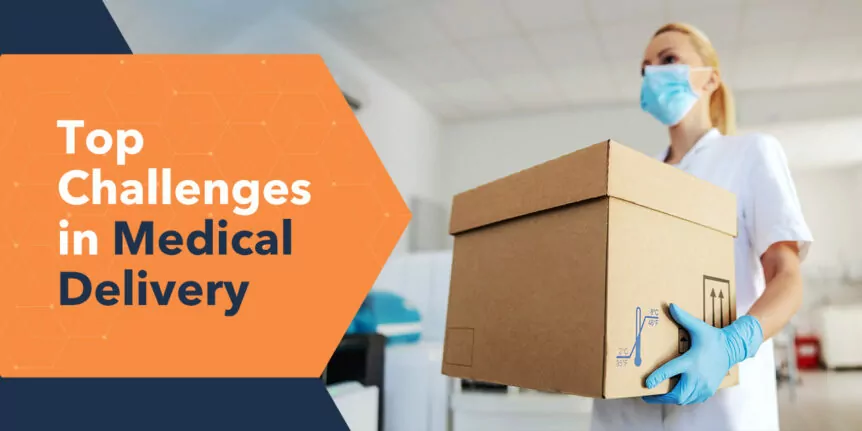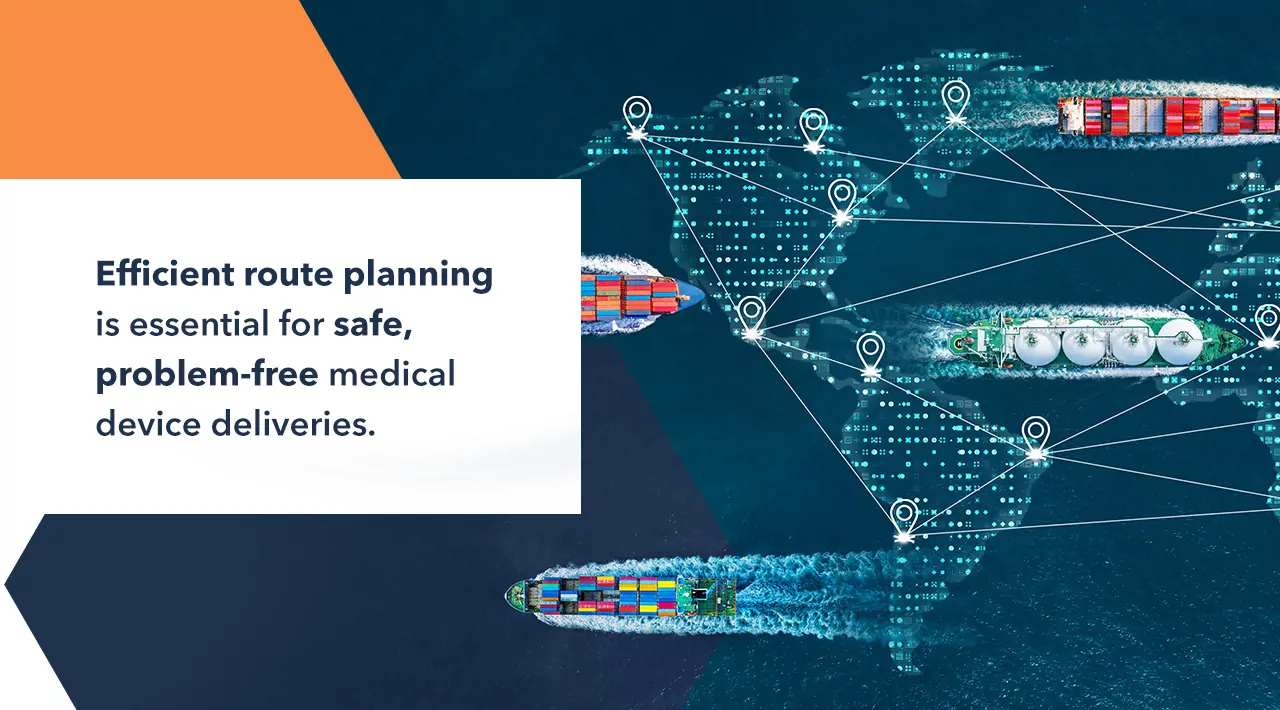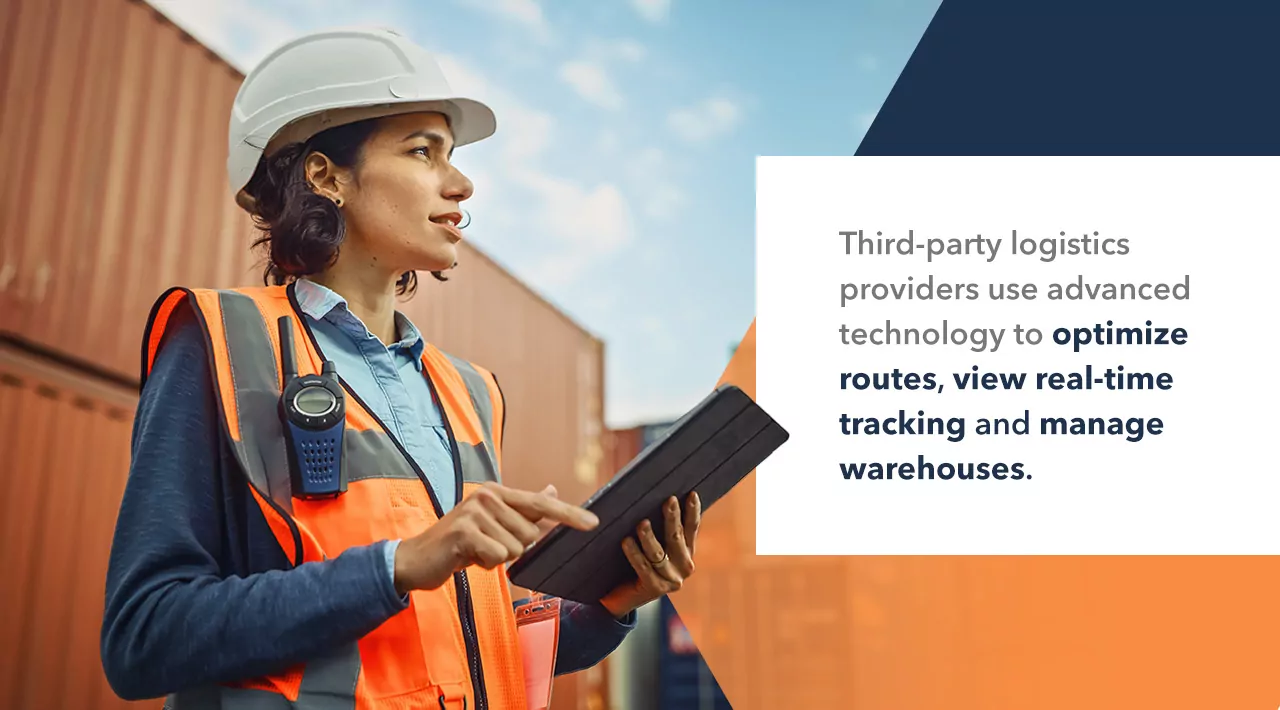Delivery companies face unique challenges when delivering medical supplies. Delayed, damaged or lost deliveries are more than inconvenient — they can be life-threatening. Health care professionals must tackle several common issues with medical delivery, including correct transportation of urgent, fragile or hazardous goods.
Obstacles and complications in the final mile of the delivery supply chain can lead to unfulfilled orders, which is not an option in health care. Health care personnel must ensure the last leg of the journey runs smoothly for their patients’ well-being.
Shipping Medical Devices
Anything used to diagnose, treat and monitor patients in care facilities or at home qualifies as a medical device, including simple items like bandages and complex equipment like dialysis machines. Often, these devices are sensitive to humidity and temperature fluctuations, so storing or transporting them under perfect conditions is essential to maintain their effectiveness.
Medical devices requiring final-mile delivery are often part of in-home treatments. These include a range of products crucial for patient care, including:
- Surgical instruments
- Life-support machines
- Medication
- Diagnostic equipment
- Laboratory samples
- Dialysis machines
- Oxygen tanks
- Mobility-related devices like walkers and wheelchairs
These items require specialized packaging and handling to prevent damage and usually have tight delivery deadlines — sometimes only a couple of hours. Third-party logistics providers assisting with medical devices must invest in high-quality materials to support fragile items and train staff on correct handling procedures.
Medical Delivery Challenges
Medical couriers are responsible for delivering health care equipment, specimens, medical records, vaccines and urgent supplies, such as organ or blood donations. They have critical transportation requirements to prevent samples, medication and components from becoming compromised. Ensuring safety, efficiency and timely delivery requires a well-coordinated approach with careful planning, specialized equipment and trained personnel.
Regulatory Requirements
Agencies like the Food and Drug Administration place stringent regulations on medical devices, dictating their labeling, packaging and transport. 3PL providers comply with these rules, avoiding penalties by ensuring patient safety through their delivery services.
Critical Timelines
Speed and reliable transport are paramount for medical devices. One of the challenges of lab specimen delivery — and even more so in urgent deliveries like organ and blood donations — is the time-sensitive nature of the task. Changes and additions to the route further complicate delivery schedules. Patients and medical facilities also rely on these devices to provide proper care. Delays can adversely affect patients’ well-being.
Meeting these timelines requires efficient logistics and precise scheduling. Dispatchers, drivers and transport managers may find these factors challenging, and medical professionals can’t take chances. A reliable medical courier is essential to streamline successful health care service delivery, and health care workers must partner with trustworthy providers.
Temperature Control
Depending on the goods they carry, the driver may have to monitor their temperature throughout the delivery. Some drugs and specimens must remain within specific temperature ranges — any deviations could render them ineffective.
Last-mile delivery couriers must have suitable trucks to complete temperature-controlled deliveries, and the drivers are well-versed in handling such sensitive items.
Secure Packaging
Another challenge of medical equipment delivery is keeping equipment and lab specimens sterile and unspoiled. Medical couriers must ensure fragile packages remain intact by handling them exceptionally carefully.
Medical deliveries’ time-sensitive nature further complicates the directive to keep packages in perfect condition. Your courier will likely require specialized equipment and training for successful deliveries.
Training
Medical deliveries can be life-or-death services. Transporting supplies is only one element to consider. Inexperienced drivers may not know how to handle medical deliveries’ specialized requirements. Sometimes, the driver may also need to set up equipment on arrival.
Drivers transporting medical equipment should have transportation of dangerous goods certification, so you can rest assured they understand the requirements for medical shipping and can tackle any challenges that may arise.
Security
Medical shipments require high levels of security, as they may include someone’s sensitive information, expensive equipment, dangerous items or large quantities of prescription medication. Drivers must use secure transport measures to protect these shipments from loss or theft and ensure timely delivery.
Inefficient Routes
Efficient route planning is essential for safe, problem-free medical device deliveries. Here are some ways third-party logistics partners overcome issues like delays, additional costs and loss of temperature control.
- Efficient planning: Optimizing travel time with software that considers real-time traffic data, potential delays and road conditions.
- Less handling: Minimizing transfers between logistics hubs or transport modes decreases the risk of damage to medical devices. A trustworthy partner can reduce handling, transfers and expenses with efficient route planning.
- Prioritizing: Emergency deliveries receive priority status to ensure they reach their destinations on time.
- Tracking: Route planning involves real-time tracking, allowing drivers to make proactive decisions to deliver items on time.
Inventory Management
Many medical deliveries require special handling, so all parties involved should always know the delivery status. Shipping medical supplies involves several moving parts, such as temperature control, safe storage and time. The inability to track deliveries could result in failure to meet these requirements.
Robust tracking systems that include real-time visibility into delivery status with processes to monitor exact locations keep all parties appraised of each movement, from the moment it enters the warehouse until it is safely in the recipient’s hands.
Trust ExpressIt for All Your Medical Courier Needs
While last-mile delivery is a significant logistical aspect for many industries to consider, it’s potentially lifesaving in health care. The final mile accounts for about 40% of global logistics costs, a necessary expense for health care providers. Using a third-party logistics provider for medical deliveries has many benefits. Logistics companies are flexible enough to scale their operations according to demand, which is crucial for large-volume deliveries. A 3PL also offers end-to-end solutions through various services and delivery options. Third-party logistics providers use advanced technology to optimize routes, view real-time tracking and manage warehouses.
Having a trustworthy partner gives you priceless peace of mind. ExpressIt Delivery has over 38 years of industry experience and can transport a vast range of medical products, including organs for transplants, prescription drugs and patient files.
We can also help you overcome your everyday hurdles with multiple delivery and courier services to transport anything from lab samples to hazardous materials. We’ll work within your budget to create a medical supply chain you can rely on, and we’ll work to meet your unique needs with custom delivery plans that suit medical requirements. Please reach out to us if you want confidence with your medical deliveries.



